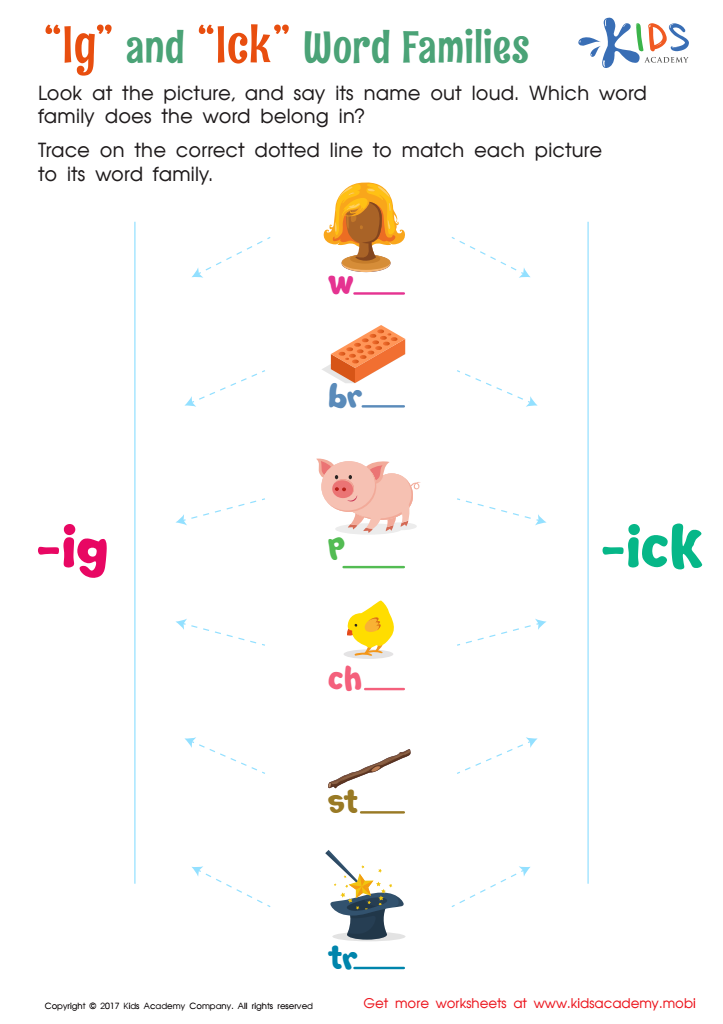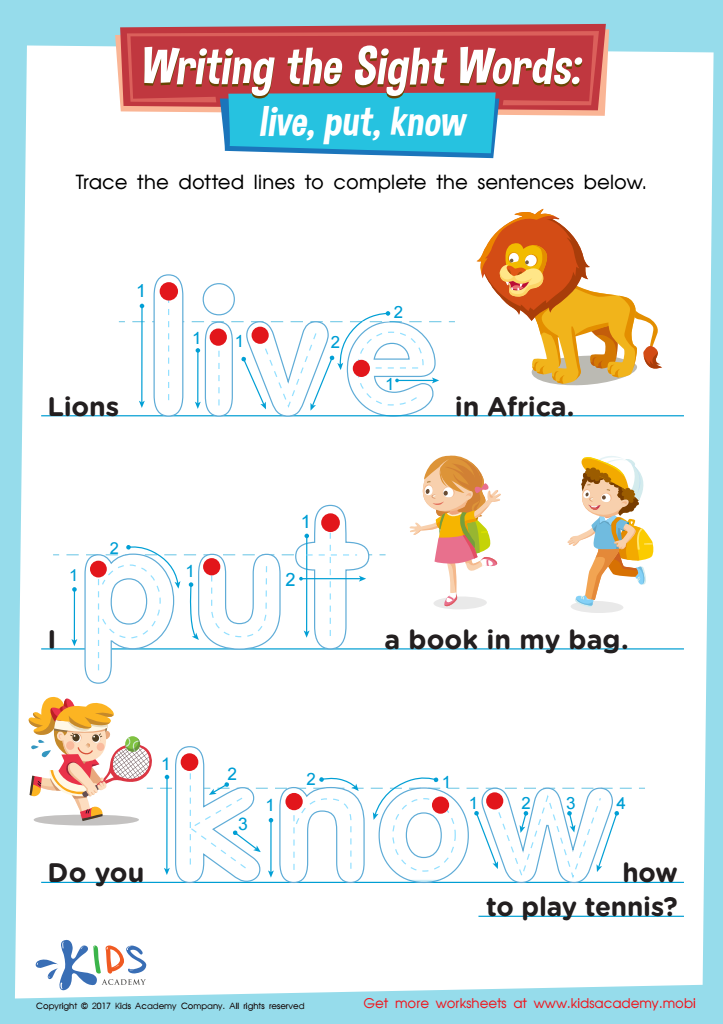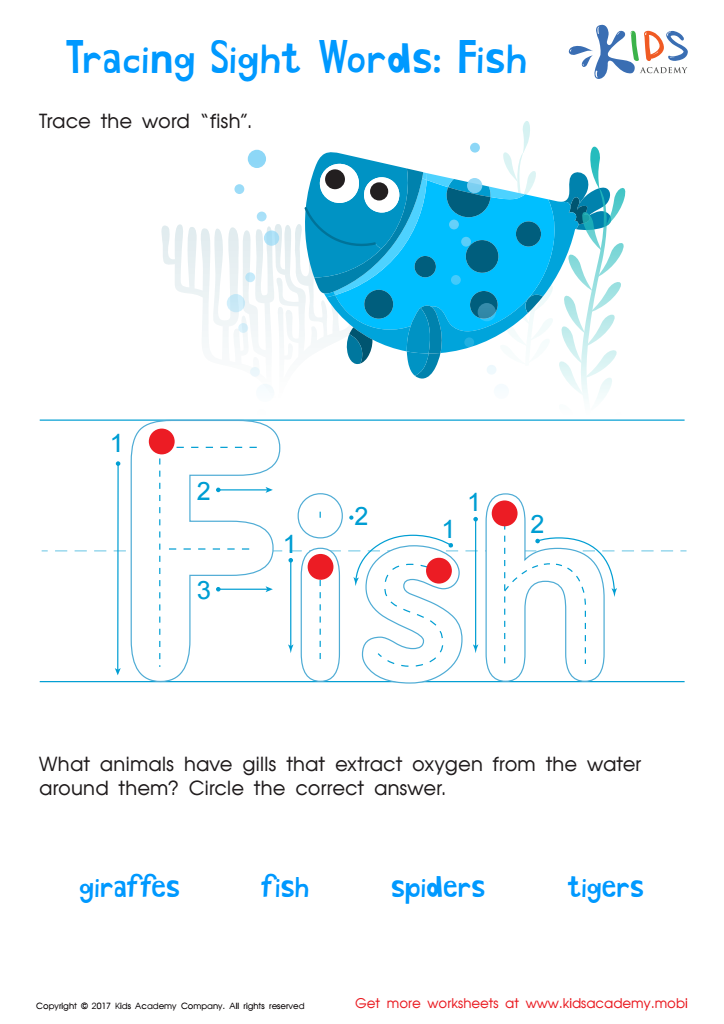Reading proficiency Normal Writing Worksheets for Ages 3-6
3 filtered results
-
From - To
Enhance your child's reading proficiency with our engaging Normal Writing Worksheets designed specifically for ages 3-6! Our worksheets offer fun, interactive activities that foster early literacy skills, helping young learners recognize letters, sounds, and words. Tailored to support developmental growth, these resources encourage comprehension and retention through colorful illustrations and age-appropriate exercises. With a focus on building a strong foundation in reading, our worksheets make learning enjoyable. Explore a variety of themes that ignite curiosity and aspiration, ensuring that your child not only learns but also grows to love reading. Dive into a world of fun and educational creativity today!


Words Families "ig" and "ick" Spelling Worksheet


Live, Put, Know Printable Sight Words Worksheet
Reading proficiency in children ages 3-6 is a critical aspect of their overall development and success in school and beyond. At this stage, children's brains are highly receptive to language, making it an opportune time for them to develop foundational literacy skills. Parents and teachers play a pivotal role in nurturing this skill, as early exposure to reading enhances vocabulary, comprehension, and critical thinking abilities.
Proficient reading skills are closely linked to later academic success. Children who can read well by the end of kindergarten are more likely to excel in future grades, while those who struggle with reading face challenges that can impact their self-esteem and social interactions. Furthermore, reading stimulates imagination and curiosity, fostering a lifelong love for learning.
Sharing stories and engaging in reading activities also creates bonding opportunities between parents and children, enriching emotional connections. Teachers, on the other hand, can implement targeted strategies to support diverse learners and create inclusive classroom environments that enhance literacy. By prioritizing reading proficiency at a young age, caregivers can help lay the groundwork for a child’s educational journey, setting them up for success in their academic and personal lives. Investing time and resources into early reading education reaps benefits for years to come.
 Assign to My Students
Assign to My Students




















